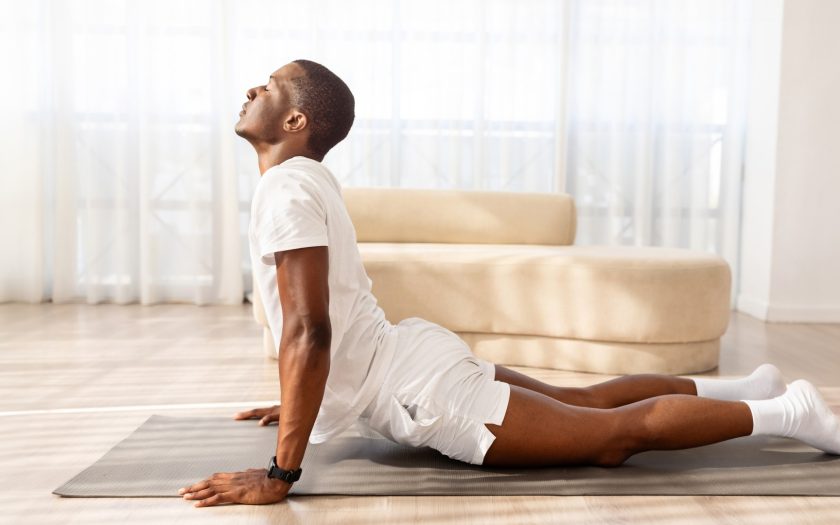Depression.
Depression often manifests not only emotionally but also physically, and one of its common physical symptoms is muscle tension. A person may constantly feel stiffness in the body, particularly in the neck, shoulders, or back. This tension stems from disruptions in the nervous system when the body remains in a state of chronic stress and levels of neurotransmitters like serotonin and dopamine are reduced. As a result, you might experience involuntary muscle tightness. Over time, this stiffness becomes habitual, leading to fatigue, weakness, and muscle pain even without physical exertion. To relieve this condition, it’s important to gently engage the body in movement—walking, stretching, warm baths, or relaxing massages can gradually reduce tension. It is also important not to ignore the psycho-emotional causes and to take the necessary medications (for example Apo-Clomipramine, Amirol, Arcalion, Bupron XL). With proper support, targeted therapy, and mindful self-care, recovery can be significantly improved.
Overfatigue.
When you work too much without allowing your body to rest properly, it doesn’t have enough time to recover, and your entire system remains in a state of tension. As a result, you might experience muscle pain in your back, shoulders, neck, or legs—even if you haven’t done any intense physical activity. Fatigued muscles receive less blood flow, which increases tension and, over time, can lead to chronic pain. To prevent this, it’s important to take regular breaks during the day, incorporate light physical activity such as stretching or walking, maintain good posture, and prioritize quality sleep. The body restores itself during rest, so the most important thing is to give yourself permission to relax—without guilt.
Excessive overload at the gym.
Pushing yourself too hard at the gym is a common cause of muscle tension, especially when the physical load exceeds your body’s current capacity. This often happens when workouts are too intense, involve heavy lifting, or are done without proper warm-up or rest between sets. Remember, after exercise, your body should feel tired but not overstrained. If you experience persistent stiffness or restricted movement after workouts, it’s a sign that you’re training was too intense. To avoid this, it’s essential to follow the principle of gradual progression, allow your body enough time to recover, and ideally, work with a trainer—or at least plan your workouts mindfully. And always remember the methods that will help improve your condition after the gym: stretching, massage, sleep and adequate water intake — all of these helps prevent overload.
Fibromyalgia.
People with fibromyalgia often experience persistent muscle stiffness, chronic pain, and fatigue that doesn’t go away even after rest. There’s also increased sensitivity to touch, and this condition is frequently accompanied by poor sleep, anxiety, headaches, and difficulties with focus. Muscle tension in fibromyalgia is not only the result of physical changes but is also deeply connected to how the nervous system processes pain. The brain tends to overreact to pain signals, even in the absence of real tissue damage, keeping the body in a constant state of internal tension. This ongoing strain further exhausts a person physically and emotionally. While there’s no definitive cure for fibromyalgia, many people learn to manage the symptoms and improve their quality of life. Gentle physical activities like yoga, Pilates, or swimming can help alleviate tension. Establishing a stable sleep routine, reducing stress, and paying close attention to the body’s signals are also key in managing this condition effectively. In addition, it is also important to take certain medications (for example, Arcalion, Cymbalta) to help you feel better.
Hypothermia.
In this state, the body loses heat faster than it can regain it, which causes a decrease in overall body temperature. One of the first and most noticeable signals of this process is muscle tension. In response to cooling, a natural defence reaction is triggered — involuntary muscle contraction. If exposure to cold lasts for a long time, the muscles gradually lose their elasticity, become stiff and painful, and movements become less coordinated. This condition is especially dangerous for those who spend long periods of time outdoors in frosty weather without proper insulation, such as outdoor workers, travelers, drivers or children in unseasonably light clothing. In more severe cases, the tension may give way to sluggishness, cramps, and overall weakness. To prevent hypothermia and the muscle tension that comes with it, it’s crucial to dress in layers, use thermal clothing, keep extremities covered, and avoid staying motionless in the cold. At the first signs of hypothermia, it’s important to get to a warm environment, drink something hot, and seek medical attention if necessary.

